News
-
 Life
LifeChemical signals from fungi tell bark beetles which trees to infest
As fungi break down defensive chemicals in trees, some byproducts act as signals to bark beetle pests, telling them which trees are most vulnerable.
By Freda Kreier -
 Science & Society
Science & SocietyLots of people feel burned out. But what is burnout exactly?
Researchers disagree on how to define burnout, or if the phenomenon is really another name for depression. Helping people cope at work still matters.
By Sujata Gupta -
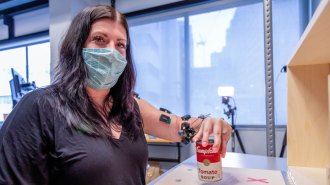 Health & Medicine
Health & MedicineA new treatment could restore some mobility in people paralyzed by strokes
Electrodes placed along the spine helped two stroke patients in a small pilot study regain control of their hands and arms almost immediately.
-
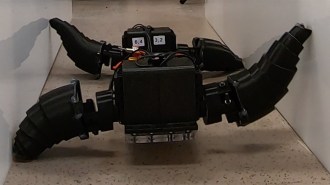 Tech
TechThis robot automatically tucks its limbs to squeeze through spaces
Inspired by ants, a robot with telescoping legs can crawl under low ceilings, climb over steps and move on grass, loose rock and mulch.
By Ananya -
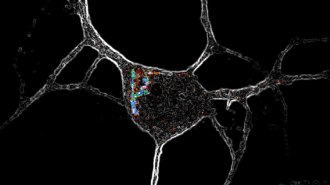 Health & Medicine
Health & MedicinePsychedelics may improve mental health by getting inside nerve cells
Psychedelics can get inside neurons, causing them to grow. This might underlie the drugs’ potential in combatting mental health disorders.
-
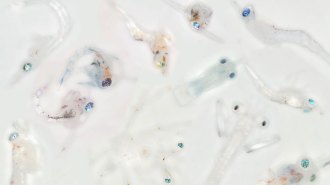 Animals
AnimalsGlassy eyes may help young crustaceans hide from predators in plain sight
Nanospheres in the eye reflect light that matches the color of the surrounding water, possibly making the animals invisible to nearby predators.
-
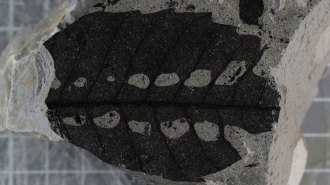 Paleontology
PaleontologyInsect bites in plant fossils reveal leaves could fold shut millions of years ago
The 252-million-year-old fossil leaves have symmetrical holes, which suggest an insect bit through the leaves when they were folded.
-
 Climate
ClimateRapid melting is eroding vulnerable cracks in Thwaites Glacier’s underbelly
Thwaites is melting slower than thought, but the worst of it is concentrated in underbelly cracks, threatening the Antarctica glacier’s stability.
By Douglas Fox -
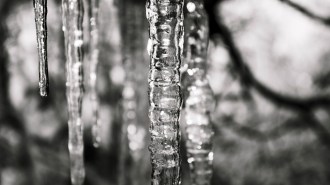 Physics
PhysicsHere’s why icicles made from pure water don’t form ripples
A new study explains why icicles made from pure water have irregular shapes rather than the ripples typical of the salty icicles found in nature.
-
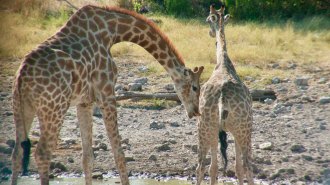 Animals
AnimalsWhy male giraffes drink potential mates’ pee
In giraffes, an organ that detects pheromones has a stronger connection to the mouth than the nose. That’s different from many other mammals.
-
 Astronomy
AstronomyThe James Webb telescope spotted the earliest known ‘quenched’ galaxy
A galaxy dubbed GS-9209 ceased forming stars more than 12.5 billion years ago after a 200-million-year-long sprint.
-
 Climate
ClimateClimate ‘teleconnections’ may link droughts and fires across continents
Far-reaching climate patterns like the El Niño-Southern Oscillation may synchronize droughts and regulate scorching of much of Earth’s burned area.
By Nikk Ogasa